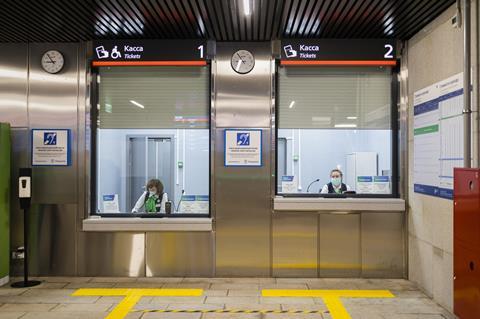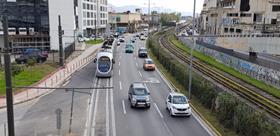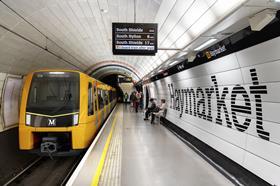
As part of the Moscow Central Diameter project to develop an RER-style network in the Russian capital, Kokoshkino station in the suburbs of Moscow has been rebuilt to modern standards over two years. Facilities included help points, benches and ticket machines, full-length canopies, dynamic navigation system, turnstiles, toilets, air heat curtains and infrared heaters. Usage of the station is predicted to rise from 1 400 to 3 200 passengers/day.

A joint venture of John Holland and Laing O’Rourke has been awarded a A$45m contract to start early construction work at Bankstown station in Sydney, which is to be converted from suburban rail to metro operation. The contract includes construction of a services building and the installation of metro systems and communication equipment. A separate main works contract will be awarded for the modification of the station.

Attiko Metro has begun test running on the tramway extension to Piraeus.
Mobility-as-a-service technology company SkedGo now offers data from more than 1 000 transport operators across Germany which can be used in journey planning apps. Users can compare and combine multiple modes including rail, bus, tram, shared micromobility, taxi and car share, with bespoke routing for pedestrians, cyclists and wheelchair users. The API also provides detail on the quantity of CO2 produced from each journey.

Grammer has launched the Ubility Air lightweight hard-shell seat for urban rail vehicles and buses. The outer and inner shells form a self-stiffening, highly stable structure with evenly distributed air chambers, so the seat does not require foam-textile padding and weighs only 4 kg.

Tyne & Wear transport authority Nexus has awarded Turner & Townsend a contract to provide project control services for its Metro Futures, Metro Flow and capital delivery programmes.
Central Ohio Transit Authority has worked with app developer Transit and fare payments as a service company Masabi to launch an account-based ticketing system. This aims to reduce barriers to public transport use through affordability, with fare capping so that single journeys work out the same cost as a pre-bought monthly pass, and by making it easier to purchasing tickets and add funds. Cash-only customers can use a retail distribution network of approximately 350 locations.

On October 27 the Cambridgeshire & Peterborough Combined Authority Board decided to end permanently the Cambridgeshire Autonomous Metro programme. Project development company One CAM Ltd is to be closed down.
